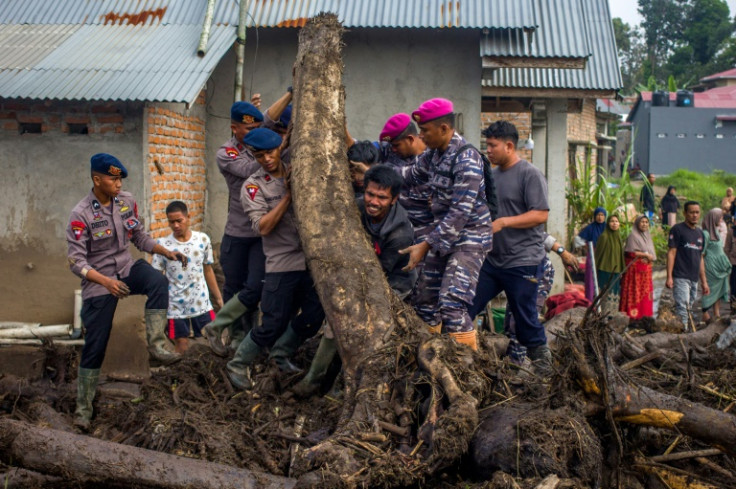
Indonesian rescuers raced Wednesday to find dozens of people still unaccounted for after flash floods and cold lava flow that inundated neighbourhoods and swept away houses over the weekend left 58 people dead.
Hours of torrential rain on Saturday caused mud and rocks to flow into districts near one of Indonesia's most active volcanos, sweeping away dozens of houses and damaging roads and mosques.
"Based on the latest data... the number of people who died is 58," national disaster agency chief Suharyanto said in a statement Wednesday.
He added that 35 people remained missing -- up from local rescuers' figure of 22 on Tuesday -- and 33 people were injured.
Rescuers said many of the retrieved bodies were found in or around nearby rivers after locals were swept away by the deluge of volcanic material, mud and rain that tore through neighbourhoods.
Cold lava, also known as lahar, is volcanic material such as ash, sand and pebbles carried down a volcano's slopes by rain.
Heavy equipment was deployed to clear debris from the areas worst hit by flooding, which has affected transport access in six districts, said Suharyanto, who goes by one name.
More than 3,300 people have been forced to evacuate from affected areas.
To aid the rescue effort, authorities on Wednesday deployed weather modification technology, the term Indonesian officials use for cloud seeding.
In this case, it is being used in a bid to make clouds rain earlier so the rainfall's intensity is weakened by the time it reaches the disaster-struck area.
Indonesia is prone to landslides and floods during the rainy season.
In 2022, about 24,000 people were evacuated and two children were killed in floods on Sumatra island, with environmental campaigners blaming deforestation caused by logging for worsening the disaster.
Trees act as a natural defence against floods, slowing the rate at which water runs down hills and into rivers.







